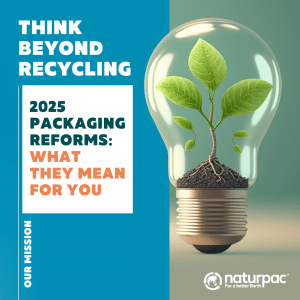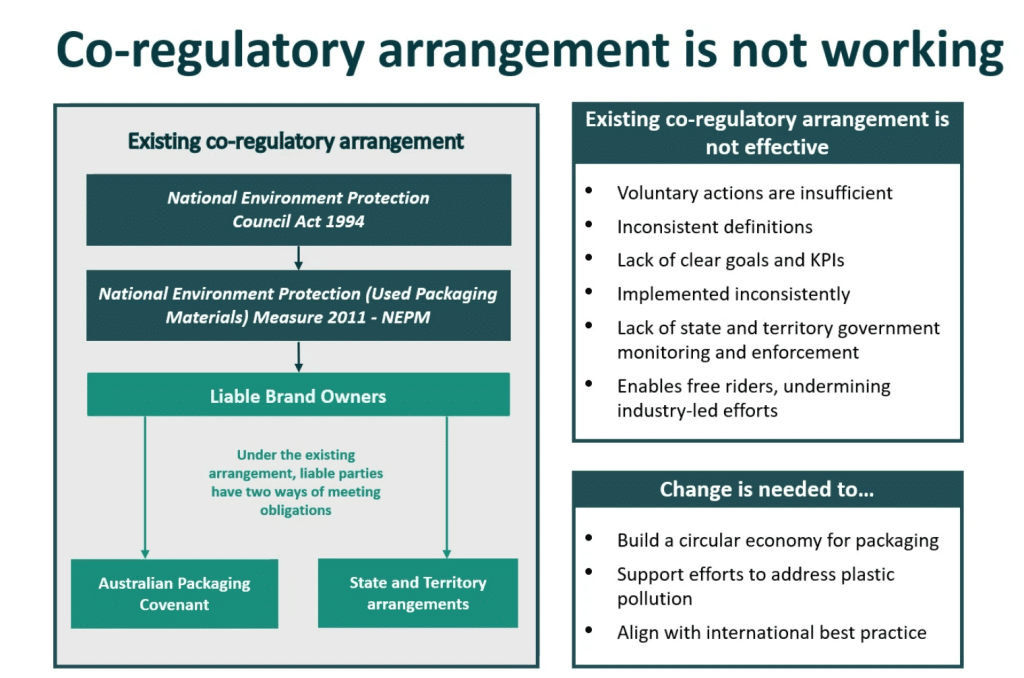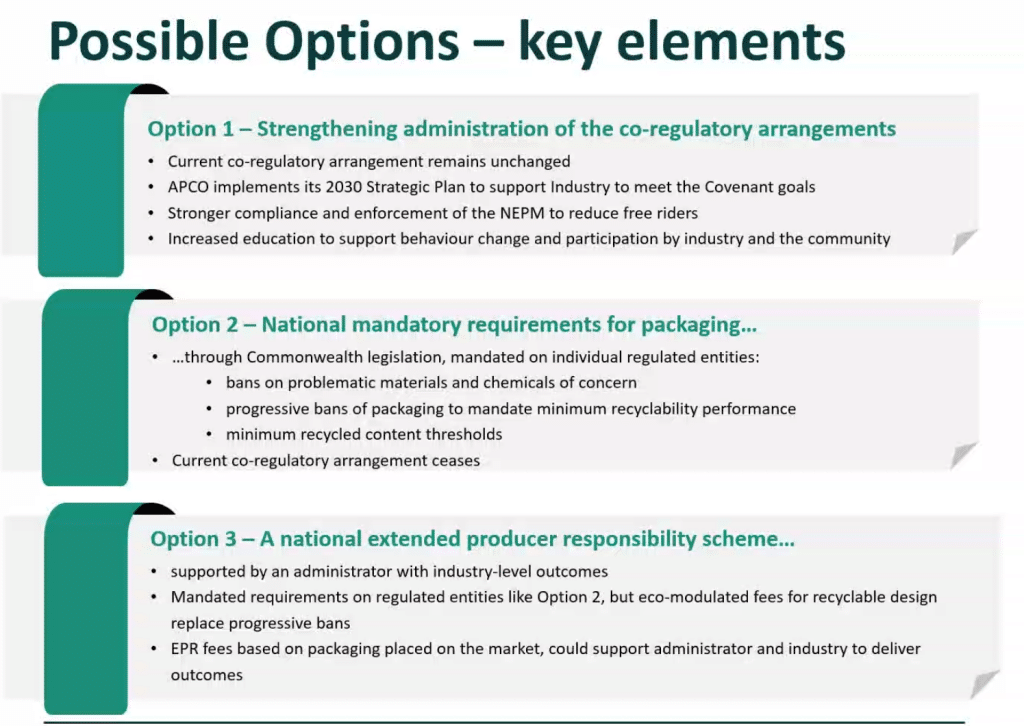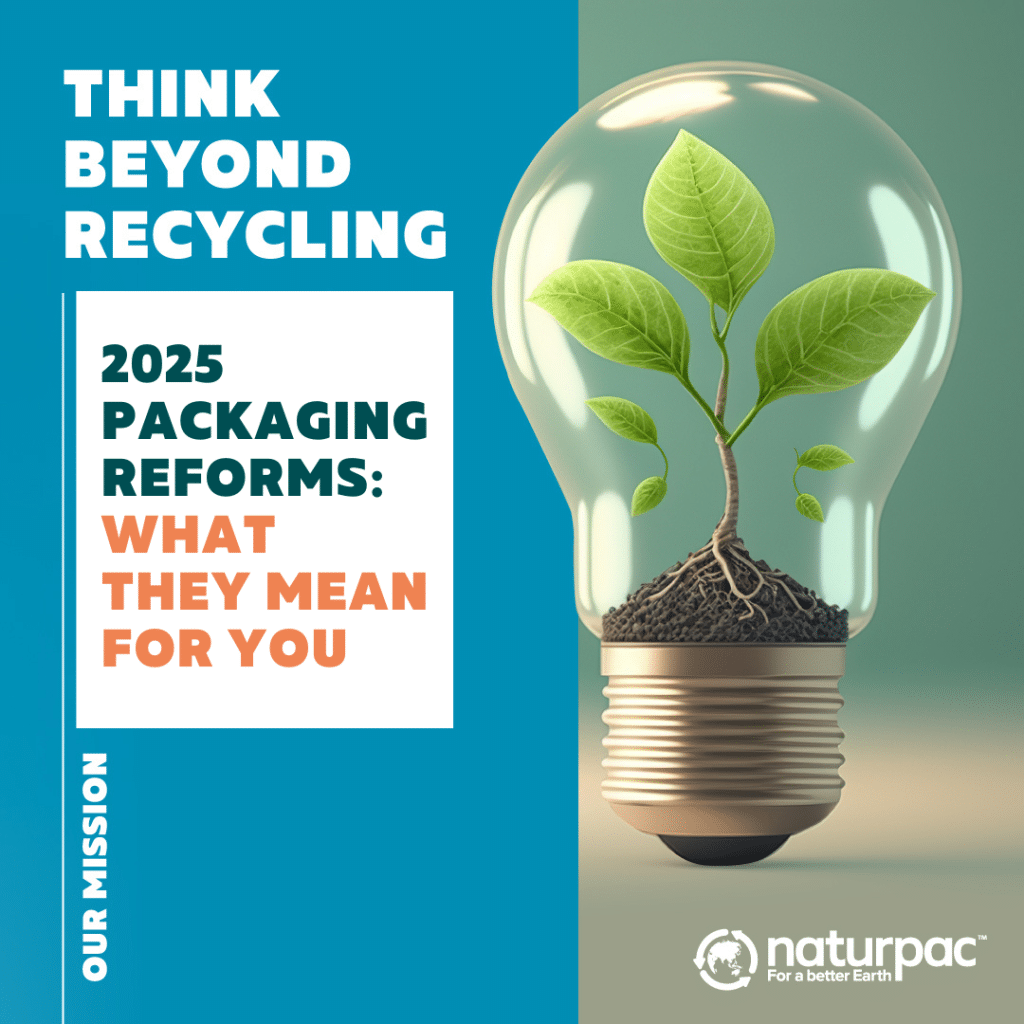Australian Sustainable Packaging Reforms: What This Means for the Fresh Produce Industry

In October 2022, all environment ministers agreed to reform the regulation of packaging in Australia. DCCEEW is working on reforming Australia’s packaging regulations to support the transition to, and maintenance of, a circular economy for packaging in Australia. This will ensure packaging is designed to eliminate waste and be recyclable, is collected and recycled at scale, and circulated in the economy for as long as possible at its highest value and best use.
In August 2024, APCO released its 2030 Strategy that includes eco-modulation to bridge critical economics gaps facing the circular economy for packaging in Australia. APCO’s 2030 strategy will deliver brands a social license for their packaging, provide assurance to the waste and recycling industry of competitive pricing and build back consumer confidence.
Chris Foley, APCO CEO, “We know from our consultation over the past 2 years that our Members are supportive of regulatory reform, and we view this as a once-in-a-generation opportunity to set the packaging industry on a path toward meaningful reform. Together, we can achieve better environmental outcomes and drive lasting change for the future of packaging in Australia. We encourage all our Members to contribute to the discussion paper.”
The Department of Climate Change, Energy, the Environment and Water (DCCEEW) recently held a webinar addressing critical reforms in sustainable packaging. These changes could significantly impact businesses across various sectors, including the fresh produce industry.
Here’s a summary of the key takeaways:
The Current System Is Falling Short
The existing sustainable packaging framework has been in place for 25 years, but it’s clear that the current arrangements are not achieving the desired outcomes. The goals and KPIs are often unclear, leading to a lack of compliance and accountability within the industry. The government has identified over 2,000 brand owners who are either unaware of or choosing not to comply with existing regulations, creating a ‘large number of free riders’ in the system.

What This Means for the Industry
Being a member of the Australian Packaging Covenant Organisation (APCO) is now more critical than ever, as the government explores options to ensure industry-wide responsibility. The government is cracking down on businesses that choose not to participate in sustainable packaging initiatives – the question begs- are you one of them?
Key Points to Consider:
- Circular Economy for Packaging: The shift towards a circular economy model is gaining momentum. This means businesses will be increasingly responsible for the end-of-life management of their packaging, including reuse and recycling initiatives.
- APCO Strategic Plan 2030: With a strategic plan in place, APCO aims to enhance industry compliance and move towards more sustainable practices by 2030. Businesses must stay informed about these developments and align their strategies accordingly.
Potential Australian Packaging Reforms Options:
- Option 1: No regulatory change but increased enforcement.
- Option 2: Ban problematic materials (funding for this remains unclear).
- Option 3: Introduce eco-modulated fees based on the type of packaging used. This means businesses may face additional costs depending on the environmental impact of their packaging choices.

Consumer Education:
Enforced labelling on all packaging is likely to become mandatory. This places the onus on brand owners to educate consumers about the recyclability and compostability of their packaging.
Liable Brand Owners:
Any business that meets certain criteria will be considered a liable brand owner and must be a member of APCO. It’s crucial to understand what makes a brand owner liable and ensure compliance to avoid penalties.
Flexible Plastics: The Big Concern
Flexible plastics remain a significant challenge. As the industry looks towards more sustainable alternatives, businesses need to evaluate their use of these materials and explore viable options for compostable or recyclable solutions.
The Cost of Inaction
The bottom line is that the industry has not paid enough attention to the targets set out over the past two decades. The consequences of continued inaction could lead to substantial reforms that further impact the fresh produce industry and the cost burden of packaging.
Next Steps for Businesses
Engage with the Consultation: Have your say before the 27th of September by reaching out to Packaging Reform.
Stay Informed: Keep an eye on the APCO website and other industry sources for updates on traceability frameworks and regulatory changes.
Understand the Options: Get in touch with our team to understand what your options are, and what the impacts could be.

Naturpac are here to help
Naturpac are here to help growers and packaging houses navigate these changes and help the industry move towards a more sustainable future. Whether you are an existing J-Tech Systems / Naturpac client, or investigating new and alternative options we can assess your current situation, provide obligation free advice and options and also help you plan beyond packaging.
